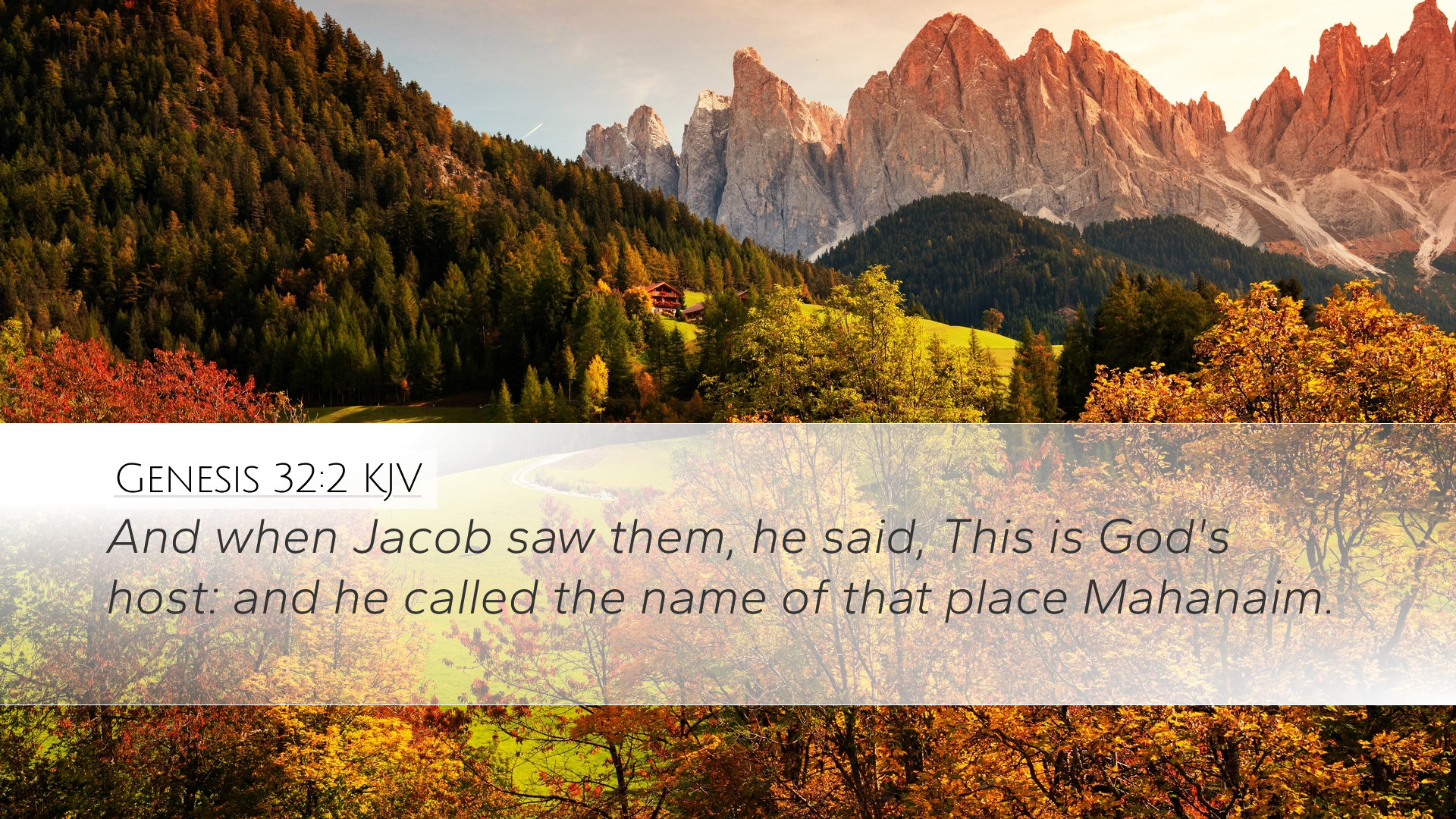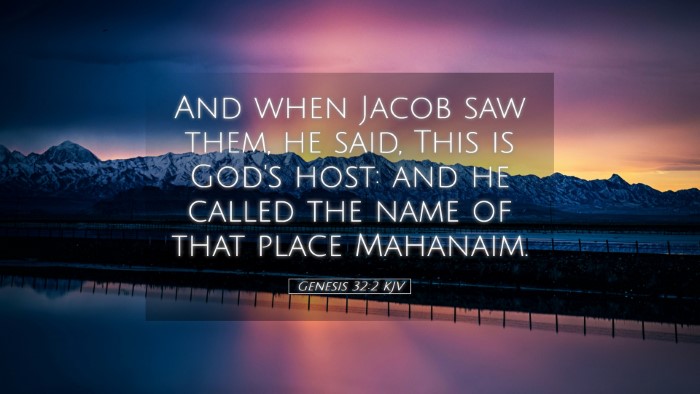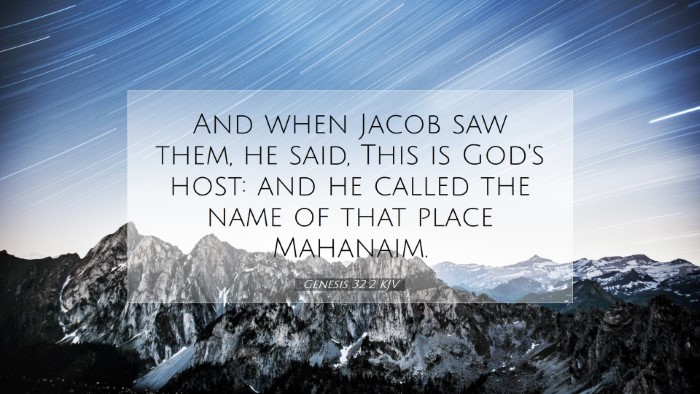Commentary on Genesis 32:2
Verse Context: Genesis 32:2 states, “And when Jacob saw them, he said, 'This is God’s host.' And he called the name of that place Mahanaim.” This verse is pivotal as it marks a significant moment in Jacob's life as he prepares to meet his estranged brother Esau.
Introduction to the Passage
The passage comes at a critical juncture in Jacob's narrative. After years of living with Laban, Jacob is headed back to Canaan, facing the uncertain prospect of reconciliation with Esau. Anticipation and anxiety fill this moment as Jacob encounters a host of angels, symbolizing divine presence and protection. This interpretation stems from classical commentaries which illuminate the spiritual implications of Jacob's journey.
Insights from Matthew Henry
Matthew Henry, in his comprehensive commentary, emphasizes the divine assistance evident in Jacob's encounter. He notes that the sight of the angels brought Jacob a profound sense of reassurance amidst his fear.
- Divine Encounters: Henry points out the importance of recognizing divine encounters in the believer's life. Jacob's realization that this multitude is God's army underscores the assurance that God is present in times of distress.
- Significance of Mahanaim: The name 'Mahanaim,' meaning 'two camps,' reflects both the angelic hosts and the impending meeting with Esau. This duality symbolizes Jacob's divided loyalties and his role in the unfolding of God's plan.
Insights from Albert Barnes
Albert Barnes offers a detailed examination of the text, focusing on the implications of Jacob’s vision.
- Interpretation of the Host: Barnes interprets the angels as protectors sent by God, serving to ensure Jacob's safety as he returns home. This reflects God's ongoing commitment to Jacob.
- Spiritual Warfare: He comments on the theme of spiritual warfare, suggesting that the sight of angels signifies the spiritual battles that Jacob faces as he reconciles with his past, highlighting the need for divine intervention in human conflicts.
Insights from Adam Clarke
Adam Clarke's commentary provides a linguistic and theological analysis of the term used for 'hosts.'
- Symbolism of the Heavenly Hosts: Clarke delves into the meaning of 'hosts' as linked to the armies of heaven. He emphasizes that God’s armies are always ready to assist His people, reinforcing the idea of God's sovereignty in the midst of human affairs.
- Personal Reflection: Clarke also reflects on Jacob’s personal growth. From being a deceiver, Jacob is now at a point where he acknowledges God’s hand upon his life, illustrating a transformation of character and reliance on God.
Theological Implications
This verse invites profound theological reflection about God’s providence and the nature of angelic ministry.
- Providence and Protection: The assurance that Jacob receives serves as a reminder that God’s providence is active in the lives of His people, providing protection and support in their journeys. It speaks to the broader narrative of redemption and God's faithfulness.
- The Role of Angels: The presence of angels signifies the intersection of the divine and human realms. It serves to illustrate the belief that angels are not merely messengers but also warriors fulfilling God’s will.
- Preparing for Reconciliation: Jacob's encounter with God’s messengers prepares him for an impending reconciliation with Esau. This can be viewed as a reflection of how divine encounters can bring about healing and restoration in relationships.
Practical Applications
For pastors and theologians, this passage serves as a rich source of theological teaching and pastoral application.
- Courage in Conflict: Jacob’s experience encourages believers to seek divine support when facing conflicts in their lives. It emphasizes the importance of prayer and reliance on God’s strength.
- Recognizing God's Hand: The narrative teaches the necessity of recognizing God's presence in our daily encounters, thereby fostering a mindset that looks for divine intervention in personal and communal challenges.
- Role of Community: The two camps signify not only divine help but also community support during times of distress. Encouraging believers to seek fellowship can enhance spiritual resilience.
Conclusion
Genesis 32:2 encapsulates a moment of divine affirmation for Jacob, setting the stage for his future. The insights from noted commentators enhance our understanding of the theological and practical applications of this verse. Through Jacob's encounter with God’s host, we are reminded of God’s faithfulness and the assurance that He is with us in times of trial and transition.


